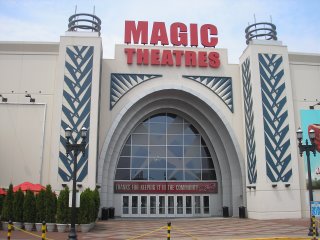I have been very busy today and was going to post this but never got around to it. Today is the 10th year anniversary of the bombing of the Khobar Towers. Michelle Malkin pays tribute to the men who lost their lives and quotes Louis Freeh, writing in the WSJ:
The FBI’s investigation of the Khobar attack was extraordinarily persistent, indeed relentless. Our fallen heroes and their families deserve nothing less. Working in close cooperation with the White House, State Department, CIA and Department of Defense, I made a series of trips to Saudi Arabia beginning in 1996. FBI agents opened an office in Riyadh and aligned themselves closely with the Mabaheth, the kingdom’s antiterrorist police. Over the course of our investigation the evidence became clear that while the attack was staged by Saudi Hezbollah members, the entire operation was planned, funded and coordinated by Iran’s security services, the IRGC and MOIS, acting on orders from the highest levels of the regime in Tehran.
In order to return an indictment and bring these terrorists to American justice, it became essential that FBI agents be permitted to interview several of the participating Hezbollah terrorists who were detained in Saudi Arabia. The purpose of the interviews was to confirm–with usable, co-conspirator testimonial evidence–the Iranian complicity that Saudi Ambassador Prince Bandar bin Sultan and the Mabaheth had already relayed to us. (For the record, the FBI’s investigation only succeeded because of the real cooperation provided by Prince Bandar and our colleagues in the Mabaheth.) FBI agents had never before been permitted to interview firsthand Saudis detained in the kingdom.
Unfortunately, the White House was unable or unwilling to help the FBI gain access to these critical witnesses. The only direction from the Clinton administration regarding Iran was to order the FBI to stop photographing and fingerprinting official Iranian delegations entering the U.S. because it was adversely impacting our “relationship” with Tehran. We had argued that the MOIS was using these groups to infiltrate its agents into the U.S.
After months of inaction, I finally turned to the former President Bush, who immediately interceded with Crown Prince Abdullah on the FBI’s behalf. Mr. Bush personally asked the Saudis to let the FBI do one-on-one interviews of the detained Khobar bombers. The Saudis immediately acceded. After Mr. Bush’s Saturday meeting with the Crown Prince in Washington, Ambassador Wyche Fowler, Dale Watson, the FBI’s excellent counterterrorism chief, and I were summoned to a Monday meeting where the crown prince directed that the FBI be given direct access to the Saudi detainees. This was the investigative breakthrough for which we had been waiting for several years.
Mr. Bush typically disclaimed any credit for his critical intervention but he earned the gratitude of many FBI agents and the Khobar families. I quickly dispatched the FBI case agents back to Saudi Arabia, where they interviewed, one-on-one, six of the Hezbollah members who actually carried out the attack. All of them directly implicated the IRGC, MOIS and senior Iranian government officials in the planning and execution of this attack. Armed with this evidence, the FBI recommended a criminal indictment that would identify Iran as the sponsor of the Khobar bombing. Finding a problem for every solution, the Clinton administration refused to support a prosecution.
The prosecution and criminal indictment for these murders had to wait for a new administration. In February 2001, working with exactly the same evidence but with a talented new prosecutor, James B. Comey Jr. (now U.S. attorney for the Southern District of New York), Attorney General John Ashcroft’s personal intervention, and White House support, the case was presented to a grand jury. On June 21, 2001, only four days before some of the terrorist charges would have become barred by the five-year statute of limitations, the grand jury indicted 13 Hezbollah terrorists for the Khobar attack and identified Iran as the sponsor.
I really wish that we could have a government that cared about justice, instead of its relationship with dictators.

